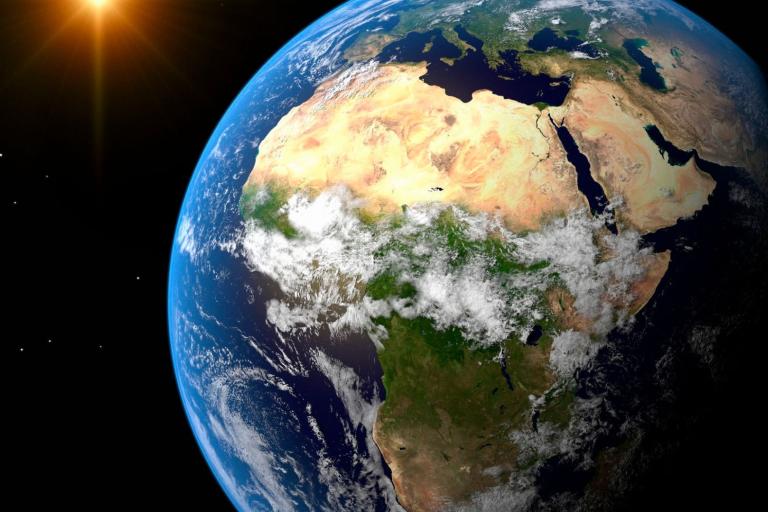A new report released by the World Meteorological Organization (WMO) has shown that the continent of Africa bears an increasingly heavy burden from climate change and disproportionately high costs for essential climate adaptation.
According to the report, African countries are losing 2–5 percent of Gross Domestic Product (GDP) and many are diverting up to 9 percent of their budgets responding to climate extremes on average.
The WMO State of the Climate in Africa 2023 report showed that In sub-Saharan Africa, the cost of adaptation is estimated to be between US$ 30-50 billion annually over the next decade, or 2-3 percent of the region’s Gross Domestic Product.
By 2030, it is estimated that up to 118 million extremely poor people (living on less than US$ 1.90 per day) will be exposed to drought, floods and extreme heat in Africa, if adequate response measures are not put in place. This will place additional burdens on poverty alleviation efforts and significantly hamper growth, according to figures cited in the report.
The report suggested that African countries need to prioritize increased investment in National Meteorological and Hydrological Services and accelerate implementation of the Early Warnings For All initiative to save lives and livelihoods. This will help mitigate risks, build adaptive capacity, boost resilience at local, national, and regional levels and guide sustainable development strategies.
Among other things, the report focuses on climate change indicators and impacts in 2023 – the world’s hottest year on record to date. It supplements the WMO State of the Global Climate report and is one of a series of WMO regional reports which provide the observational basis to help drive action and support decision-making.
Read also: Report: Japan swelters through hottest summer as China log warmest August on record
“Over the past 60 years, Africa has observed a warming trend that has become more rapid than the global average,”said WMO Secretary-General Celeste Saulo. “In 2023, the continent experienced deadly heatwaves, heavy rains, floods, tropical cyclones, and prolonged droughts,”.
“While many countries in the Horn of Africa, southern and North-West Africa continued to suffer exceptional multi-year drought, other countries experienced extreme precipitation events in 2023 leading to flooding with significant casualties. These extreme events led to devastating impacts on communities, with serious economic implications,” said Celeste Saulo.
“This pattern of extreme weather has continued in 2024. Parts of southern Africa have been gripped by damaging drought. Exceptional seasonal rainfall has caused death and devastation in East African countries, most recently in Sudan and South Sudan. This exacerbates an already desperate humanitarian crisis,” she said.
WMO, the African Union Commission, United Nations Economic Commission for Africa and the African Ministerial Conference on Meteorology will release the report in collaboration with partners at the 12th Climate Change for Development in Africa (CCDA) Conference in Abidjan, Cote d’Ivoire on 2 September 2024.
“The State of Climate in Africa 2023 Report highlights the urgent need for investing in meteorological services and early warning systems to help adapt to climate change and build resilience in Africa. As the impacts of climate change continue to manifest globally, the African continent stands at a critical juncture,” said H.E. Ambassador Josefa Leonel Correia Sacko, Commissioner for Agriculture, Rural Development, Blue Economy and Sustainable Environment at the African Union Commission.
“Africa faces disproportionate burdens and risks arising from climate change related weather events and patterns, which cause massive humanitarian crises with detrimental impacts on agriculture, and food security, education, energy, infrastructure, peace, and security, public health, water resources, and overall socio-economic development,” she said.
Story was adapted from the Guardian.
